School of History Students Hold Meeting in High School to Mark National Memorial Day for Nanjing Massacre Victims
The students of the Undergraduate Party Branch of the School of History joined hands with junior school grade one pupils from the East Campus of Jinling Huaxing Experimental School to hold a “theme education activity” to mark the National Memorial Day for the Victims of Nanjing Massacre on December 11, 2020.
The NJU students were led by Tian Jie, secretary of the undergraduate Party branch, together with Party branch members Gao Yulai, Yang Hongshan, and Zhou Ru.
Before the event started, Xu Muyu, director of the office of student affairs of the East Campus of Jinling Huaxing Experimental School, introduced members of the Party branch from NJU and emphasized the significance of the theme education activity for the National Memorial Day.
This sharing consists of two parts: remembering history and cherishing peace.
The first part was presented by Yang Hongshan. She elaborated on the meaning of the National Memorial Day for the victims of the Nanjing Massacre and explained the historical background of the Nanjing Massacre, the competition of killing a hundred people, mass graves, and the burial sites.
She also cited the existing testimonies of international friends and the Oral History Association of Nanjing University’s The Last Testimony, a project of collecting testimonies from the survivors of the Nanjing Massacre by Japanese Invaders.
She selected and quoted the testimonies of some Nanjing Massacre survivors and presented the tragic history in a compelling way, pointing out the importance of our desire that "we want peace, not wars."
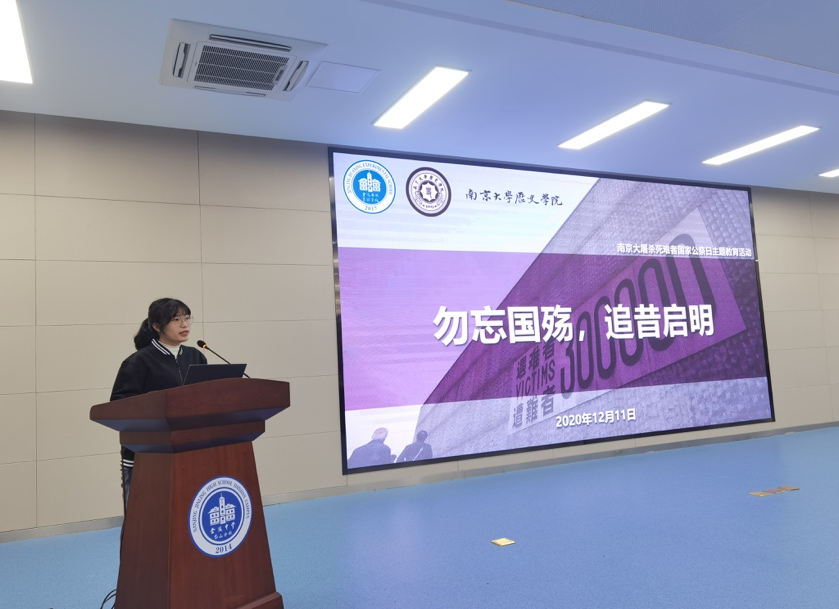
(Photo: Yang Hongshan gives her speech.)
In the second part of the activity, cherishing peace, Gao Yulai first explained the definition of "peace" in the world today. He used cases of terrorism and existing war crimes in other countries and cited modern China’s humiliation history as evidence for the importance of staying away from war and the need to cherish peace.
In addition, Gao Yulai shared his own experience of participation in poverty alleviation work in a poor village of Dong ethnic group in Qiandongnan, Guizhou, in 2019. He used his own experience to tell the students how the Chinese people today, under the leadership of the CPC, cherish and develop peace to work for national prosperity.
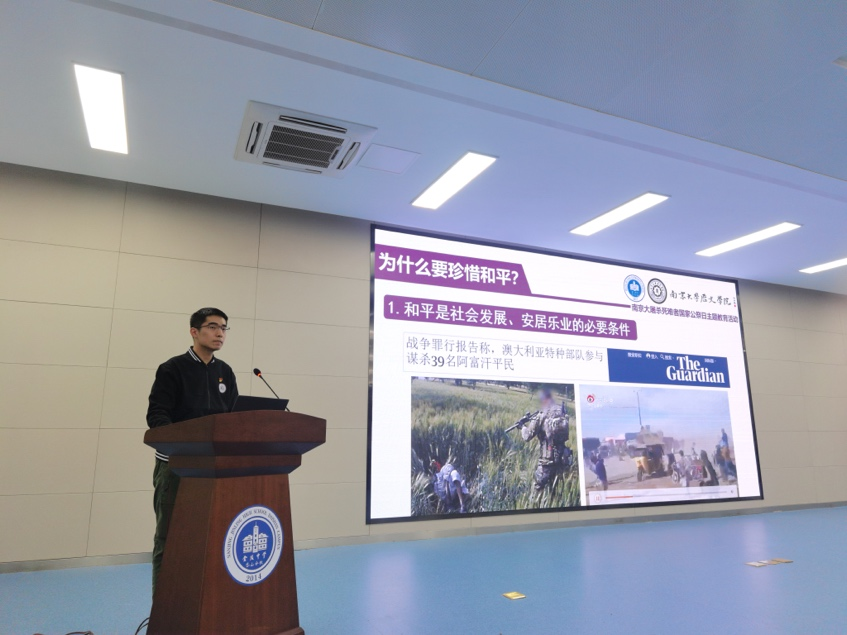
(Photo: Gao Yulai gives his speech.)
This activity called on young people to value the study of history, learn from history, and learn to understand China from a worldly perspective. Today, when the development of socialism with Chinese characteristics is facing new opportunities and challenges, both teenagers in the classroom and young party members should follow the Party closely and strive to be pillars of our country.
More than 300 students from Jinling Huaxing School came to attend the activity, and they responded with enthusiasm. This activity has enriched the students' historical knowledge and strengthened their sense of patriotism.
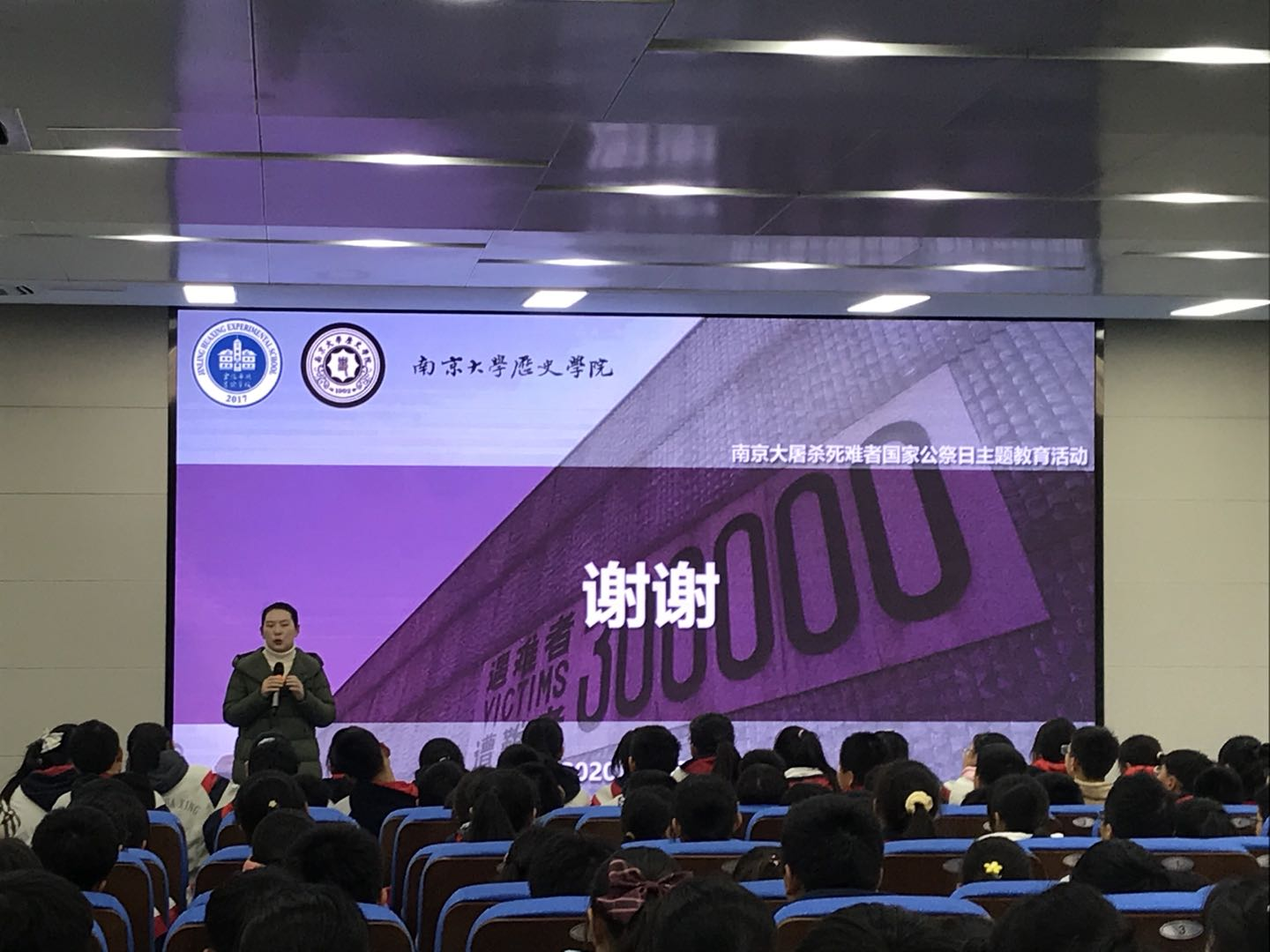
(Photo: Director Xu Muyu gives his speech.)
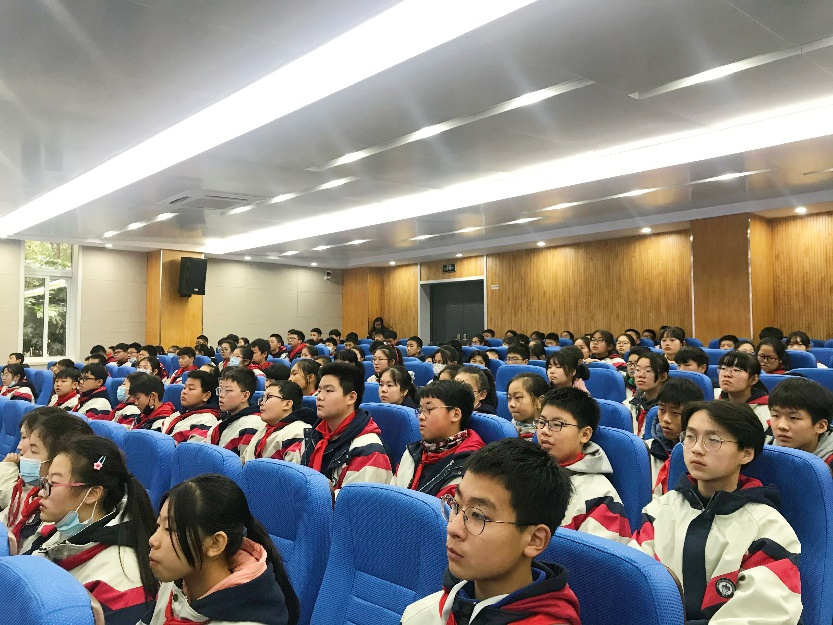
General Secretary Xi Jinping said: "Contemporary China is the extension and development of historical China." "Studying the 'four histories' is a long march in spirit, which can help young people strengthen their ideals and beliefs of working hard, find their own historical orientation in in-depth learning and comprehension, and gather the majestic power to realize the Chinese dream of the great rejuvenation of the Chinese nation."
December 13 is the National Memorial Day for the victims of the Nanjing Massacre. It is a requirement for Party members to learn from the past so as to look into the future.
This theme education activity for the National Memorial Day was in answer to the call of General Secretary Xi to study the "four histories." The young Party members tried to fully apply their professional knowledge to practice.
While studying and applying the "four histories," members of the Party branch felt that their understanding of Party history and Party constitution has been deepened, and their sense of historical mission and responsibility has been strengthened. We must adhere to the leadership of CPC, learn from the experience of our predecessors to enrich ourselves, and give full play to the role model of young Party members so as to contribute to the construction of socialism in a new era.
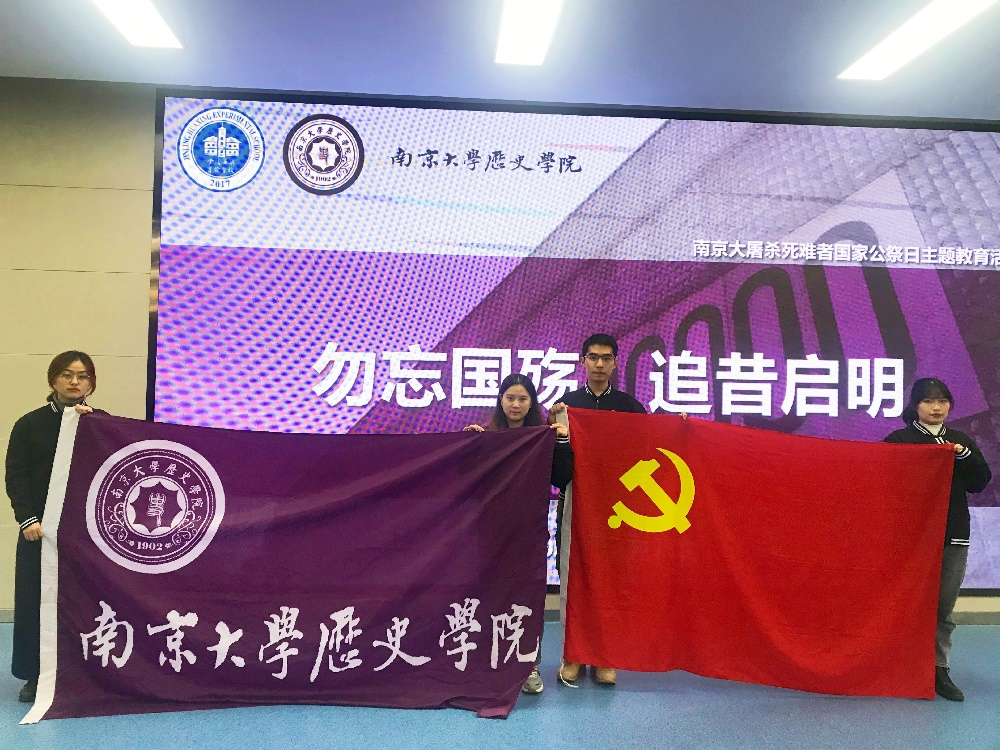
(Article written by and Photos provided by Zhou Ru)

